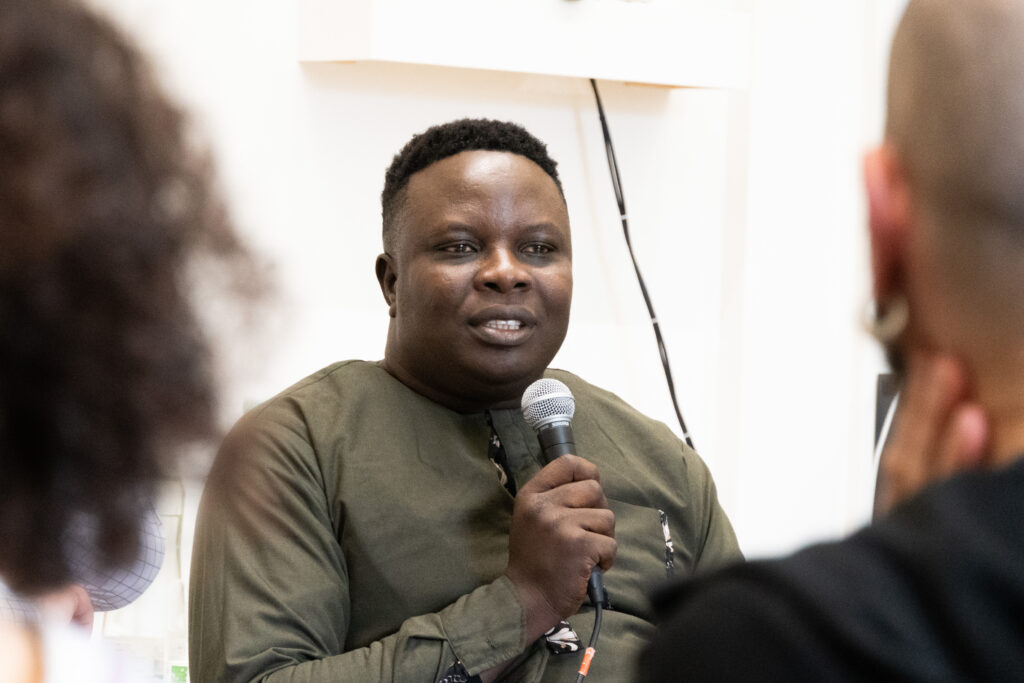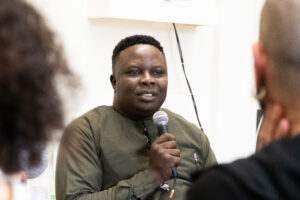
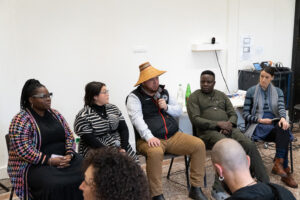
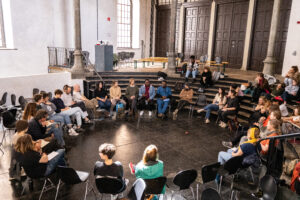
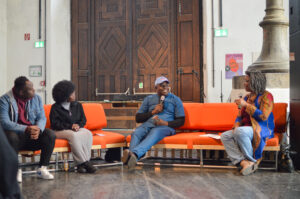
Our founder Prince Israel Orekha was the Africa voice on the panel with other front-line community members from USA, Canada, Europe , he was Speaking on Voices of Resistance Against Fossil Gas Exports at the on going People’s Summit in Vienna Austria. His focus was on the Historical Development of Oil & Gas Pollution in Nigeria &It’s Environment implications.
Introduction:
In 1956, a small community, Oloibiri in Ogbia LGA Bayelsa state, was discovered to house oil. It is located at the eastern part of the Niger Delta region. In 1958, the British colonial rulers licensed Shell oil to drill and explore oil with the permission to go into farmlands, rivers and creeks.
Niger Delta is the world most polluted environment with fossil gas exploitation, with high numbers of biodiversity loss due to oil and gas extraction, Leaving us with a stranded community, health hazards leading to respiratory tract infections, mental health, and other pressing public health concerns which may have contributed to pregnancy related complications. It is worth noting that our traditional cultural practice, have also been greatly affected, cultural norms, practices and knowledge have been made useless because an optimum environment that allows for the utilization of indigenous knowledge has been ruined.
Key Issues at hand (on Going Challenges)
1,The Nigeria -Morocco Gas Pipeline Deal, more voices are needed to educate communities who are going to bear the brunt, farmlands, and other biodiversity loss, during this process and the hardship that it will bring. It estimated that communities in over twelve country 12 in west Africa will be affected, approximately 5,600 kilometers km from Nigeria, Niger Delta to Northern Morocco, through Spain, this was signed since 2017, to produce 30 billion cubic meter (bcm) per year (equivalent of 3.0 billion standard cubic feet of gas per day), currently at the final stage of implementation.
2, IOCs Divestment plan from the Nigeria Niger Delta community to our deep waters without remediation and compensations , the framework for divestment recently released does not capture community concerns, and forgetting the implication of stranded asset, stranded personnel and stranded community that it will bring.
Gaps
1,Knowledge Gap: on the imperative for community organising, for unified voices to amplify action
2, low awareness, to understand the serious dangers of the toxic activities of Oil & Gas extraction in our environment.
3, Inadequate skill Sets: for local campaigns, advocacy and movement building, tools to enable transition from issues to actions, and amplify local voices for social and environmental justice.
Challenges :
3, Striking civic space: for corporate good of our people to organize and engage in the collective well being to demand for environmental justice.
4, Stiff Resistance from IOCs, and their benefactors. Using division and rule strategy to hider community organizing effort and accelerate their divestment plans without remediation or financial compensation of the impacted communities.
5, Government weak and unreliable policy’s and regulations to hold polluters ac-countable
Opportunity
1, Building partnership with activist at the grassroots
2, Develop a co-creation initiative for movement building actions, bring the collective together
3,Unification and Coordination of climate action voices
4, Support Knowledge transfers for capacity development to strengthen grass-roots /local activist, because some of us at the verge of giving up the struggle, due to lack of supports, it imperative to note, we are losing some of our young comrades to polluters, who now drives false solution initiatives for them.
This is an open call for solidarity , as we are raising more voices for a collective action, challenging polluters and their sponsors globally, to #StopIT the environmental genocide.
What do we want:
A shift towards renewable energy sources and sustainable practices to address the interconnected crises of climate change, environmental degradation, and social injustice
